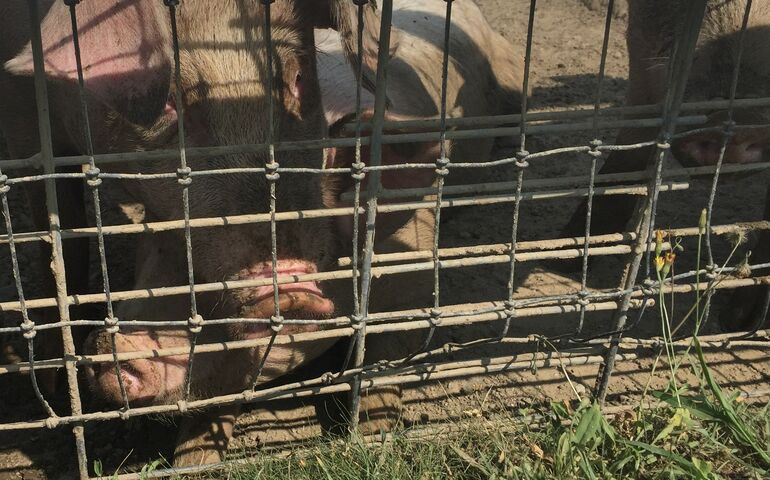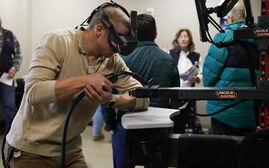Maine meat, poultry processors may get needed boost with federal legislation
 Photo / Maureen Milliken
Maine's small livestock farmers and meat and poultry processers may get a needed boost with a bill in the U.S. Senate that clears up bureaucratic hurdles and provides grant money and training options.
Photo / Maureen Milliken
Maine's small livestock farmers and meat and poultry processers may get a needed boost with a bill in the U.S. Senate that clears up bureaucratic hurdles and provides grant money and training options.
A bill recently introduced in the U.S. Senate would provide federal support to small meat and poultry processors and help strengthen and streamline their operations.
The legislation would give small food processors more access to information that is critical to food safety planning, allow more inspector-approved meat products to be sold across state lines, and funnel federal dollars toward training, education, and technical assistance grants. The bill is cosponsored by U.S. Sens. Susan Collins, R-Maine, and Angus King, I-Maine. It's initial sponsors are U.S. Sens. Jon Thune, R-South Dakota, and Jeff Merkley, D-Oregon.
“The supply chain disruptions and restaurant closures caused by the COVID-19 pandemic have placed increasing financial pressure on Maine’s rural farming communities, including our small farms that raise livestock,” Collins said in a news release.
She said the bill will provide some relief by clearing unnecessary bureaucratic hurdles, "which would ensure that the livestock raised in Maine can also be processed right here in our state by local, family-owned food processors and butchers.”
King said that the legislation is crucial for Maine’s small family farms and meat and poultry processors, which "are key building blocks of communities across our state, providing healthy, locally raised meat for their neighbors and making important contributions to the local economy."
"It’s our hope that this legislation will act as a helping hand in these difficult times by directing resources and investments to where they can do much good and bolster local economies around the country," he said.
Specifically, the Strengthening Local Processing Act would:
- Provide an incentive for more states to establish meat and poultry inspection programs — which small food processors need to approve their products — by increasing the federal government’s cost share for the programs from 50% to 65%.
- Allow state-inspected meat processors to operate as federal inspection sites, allowing more small and local processors to ship their products to other states and countries.
- Establish a searchable database of peer-reviewed, publicly available studies to establish and maintain Hazard Analysis and Critical Control Points plans, which are required of the processors. This would help small food processors develop a the plans and expedite the approval process.
- Create a grant program that would reimburse costs associated with meeting state or federal inspection guidelines, expanding infrastructure to establish or increase harvest and processing capacity and adapting to the COVID-19 pandemic and future market needs.
- Establish training grants to support and train small plant operators, small plant employees and the next generation of meat processors and butchers, including an additional $10 million in discretionary funding for higher education training and processor career training.
Jason Tessier, of Tessier's Farm in Skowhegan, said, “As both a farmer and as an owner operator of a small meat processing facility, I feel reform is greatly needed in the industry. During a time of continued uncertainty and volatility in the industry, these small plants offer stability, and collectively cushion the supply chain shocks we have experienced due to COVID-19."
He said the bill will offer much-needed support to these small businesses, both with financial assistance and by increasing capacity through training, and streamlining processes. "Which would allow many of these owner-operator facilities to focus more efforts toward food production."














0 Comments